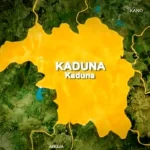The ECOWAS Community Court of Justice has called on stakeholders in the justice sector to bring justice out of courtrooms and into the heart of West African communities.
President of the ECOWAS Court, Honourable Justice Ricardo Claudio Monteiro Gonçalves, who made the call at the launch of the Sensitisation Outreach in Lagos, also declared that justice must no longer be the “language of the privileged” or “a distant dream” but a birthright for every citizen—from the remotest village to the bustling urban centres.
“Justice hidden is justice denied,” Justice Gonçalves stated.
“We are here not just as officers of the court, but as messengers of change. The time has come to restore hope, build bridges, and serve justice where it is most needed—at the grassroots.”
Hosted at Eko Hotels and Suites, the event marks the start of a multi-day programme designed to raise awareness about the Court’s role, improve understanding of ECOWAS Community law, and engage directly with legal professionals, students, and citizens.
The sensitisation initiative precedes the Court’s External Session, scheduled to run from 8 to 16 May.
Justice Gonçalves highlighted a series of groundbreaking reforms that have modernised the Court’s operations, including the introduction of electronic filing, virtual hearings, and online access to judgments—measures aimed at enhancing transparency, reducing bureaucratic barriers, and connecting even the most disadvantaged citizens to the judicial process.
He also appealed to stakeholders across the justice sector to uphold judicial independence with integrity.
Governments, he stressed, must cooperate by ratifying and implementing human rights treaties and ensuring the timely enforcement of court judgments.
Chief Justice of Nigeria, Honourable Justice Kudirat M.O. Kekere-Ekun, who chaired the ceremony, affirmed the critical role the ECOWAS Court plays in safeguarding rights and strengthening the rule of law across West Africa.
She emphasised that the Court does not threaten national judiciaries but rather complements them in addressing cross-border challenges such as corruption, terrorism, and human rights violations.
“No single national judiciary can effectively respond to these transnational issues,” she said.
“The ECOWAS Court enhances consistency in the application of regional legal instruments and provides a reliable forum for resolving disputes beyond national jurisdictions.”
Lagos State Governor, Mr Babajide Olusola Sanwo-Olu, welcomed the ECOWAS delegation, praising the Court’s decision to host the outreach in Lagos—a city he described as the economic and cultural heartbeat of West Africa.
He reaffirmed the state’s commitment to justice and regional integration, calling the Court’s presence a vital step towards making justice more visible and accessible.
“This event reflects our collective resolve to strengthen institutions and bring justice closer to the people,” Governor Sanwo-Olu said.
“Only through collaboration and a firm commitment to the rule of law can we ensure a peaceful, inclusive West Africa.”
The sensitisation programme continues throughout the week, featuring public engagements, legal education activities, and the historic external court sessions aimed at fostering deeper ties between regional and national legal systems.
The event has drawn participation from high-ranking judges, legal practitioners, civil society leaders, students, and members of the diplomatic corps.
As West Africa grapples with complex challenges ranging from human rights enforcement to regional economic integration, this outreach is seen as a crucial effort to demystify the ECOWAS Court and empower citizens with the tools to claim their rights under regional law.
In the words of Justice Gonçalves: “May this be a new awakening, in which all institutions, all professions, and all citizens walk together in the light of justice.”
ALSO READ FROM NIGERIAN TRIBUNE






